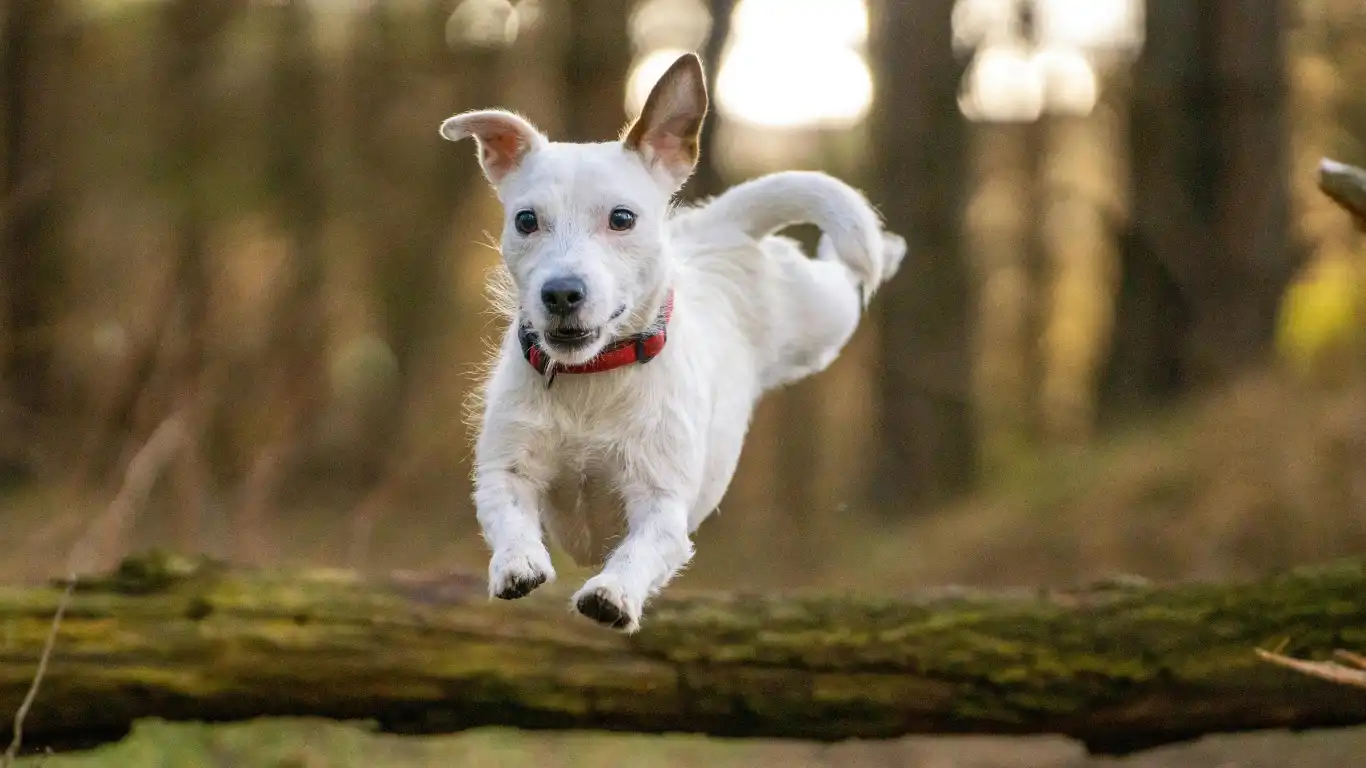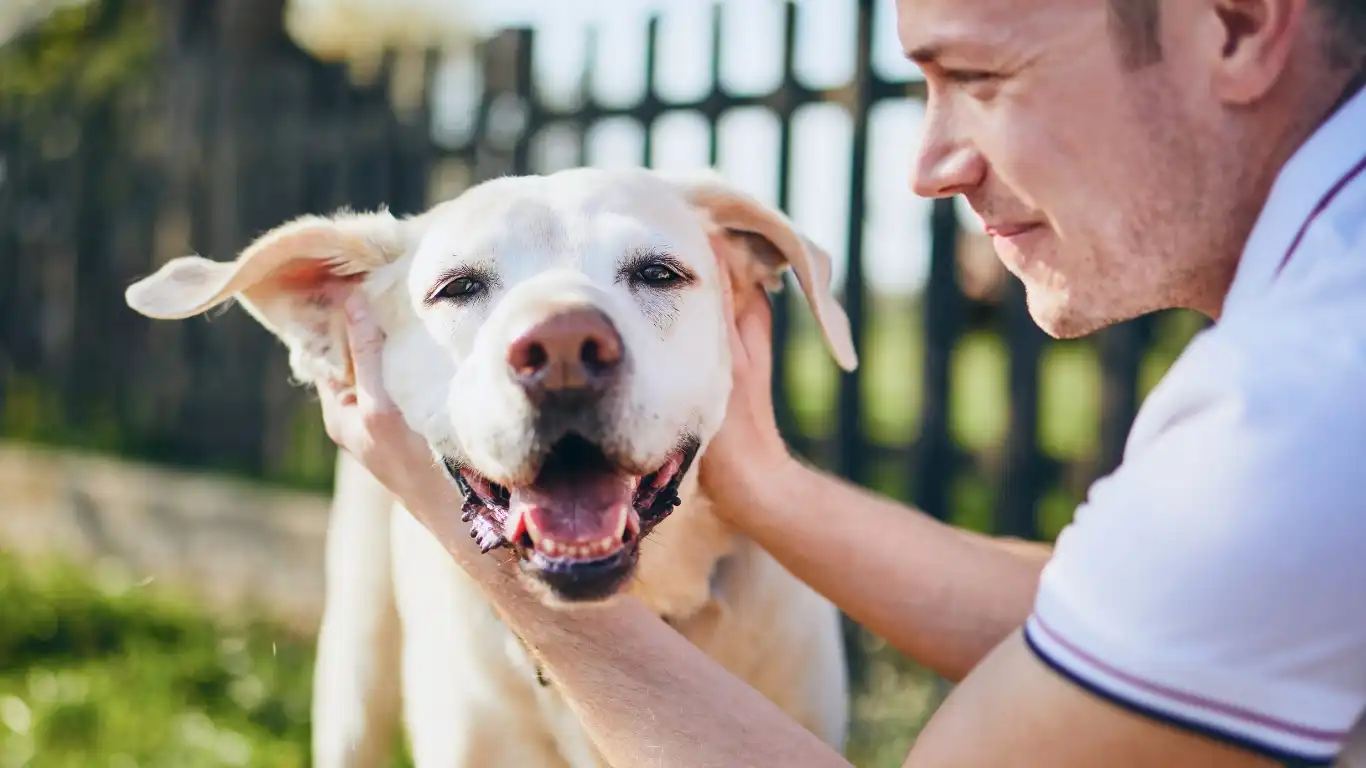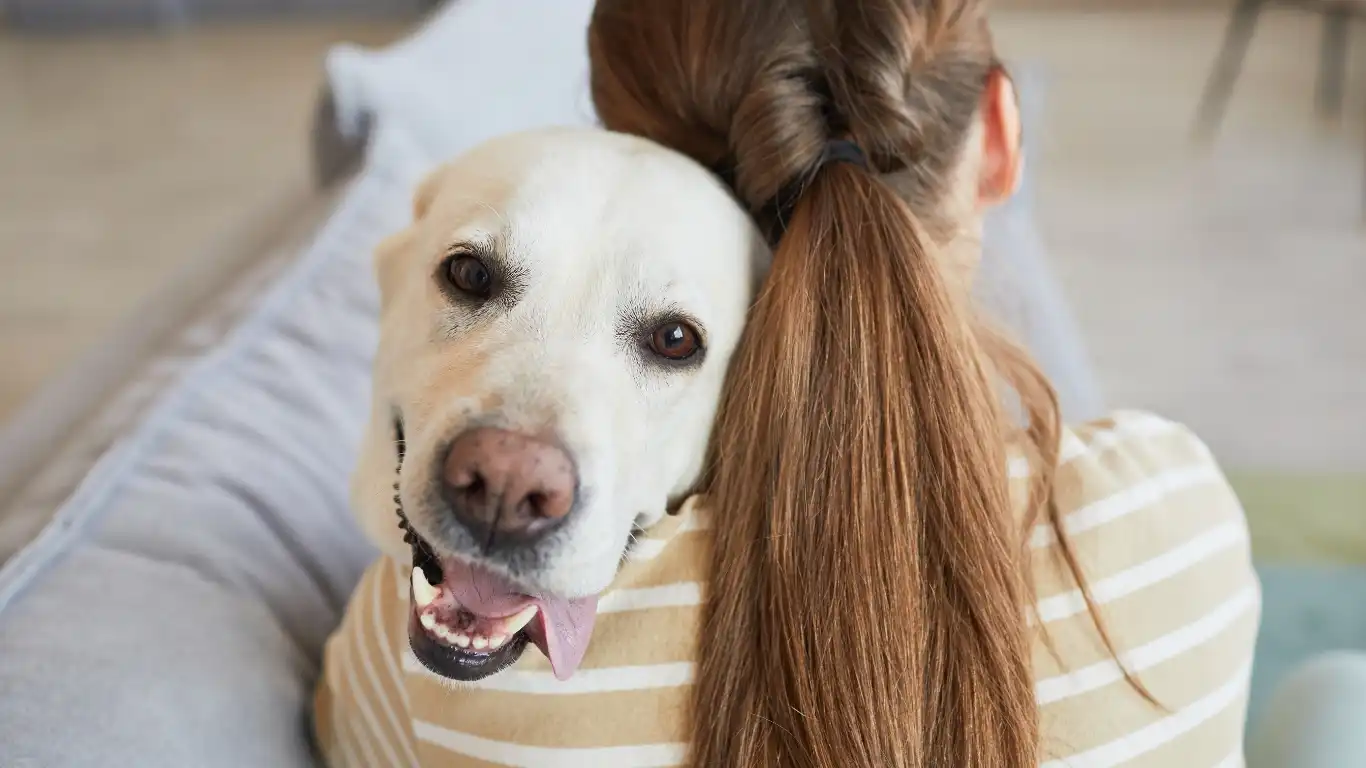Help Your Dog Sleep Longer at Night With These Proven Tips
Let’s be honest—nothing wrecks your sleep schedule like a restless pup pacing the floors at 2 a.m. If you’ve been googling how to help your dog sleep longer at night, you’re definitely not alone. As a vet tech who’s been deep in the trenches of canine care for years—especially in nutrition—I’ve seen firsthand how sleep issues can drive both dogs and their humans up the wall. But here’s the good news: there’s a lot we can do to help our furry best friends (and ourselves) catch more zzz’s.
Understanding Why Your Dog Won’t Stay Asleep

Before we jump into fixes, we’ve gotta start with the “why.” Not all dogs are wired the same, and their nighttime wake-ups can stem from a bunch of different issues. I’ve had clients come in assuming their dog was just “being annoying,” but once we did some digging, we discovered underlying problems they hadn’t even considered.
Common Sleep Disruptors in Dogs
- Diet-related issues: Too much food right before bed or the wrong type of food altogether.
- Medical conditions: Arthritis, bladder issues, or even silent conditions like cognitive dysfunction in older dogs.
- Separation anxiety: Especially common in rescue pups or those with a strong bond to their humans.
- Boredom or lack of stimulation: Yup, just like kids, dogs need to burn off energy or they’ll find creative ways to stay entertained at 3 a.m.
In my clinic days, I had this sweet Labrador named Daisy who’d bark non-stop around midnight. Her pet parent was losing sleep and patience. Turns out Daisy wasn’t getting enough mental stimulation during the day, and her diet had far too many fillers causing mild GI discomfort. Simple changes made a huge difference—and everyone started sleeping better.
Step One: Nail Down a Nighttime Routine

Just like us, dogs thrive on routine. Building a solid wind-down schedule helps signal to your dog’s body and brain that it’s time to power down. I always tell clients to treat it like a mini bedtime ritual. And hey, who doesn’t like a little structure to close out the day?
What a Good Doggie Bedtime Routine Might Include:
- Last potty trip: Give your pup one final bathroom break about 15–30 minutes before bed.
- Light grooming: Brushing helps calm them down and offers bonding time.
- Turn down the energy: Avoid hyper play right before bed. Think soft cuddles or a calming massage instead.
- Consistent sleep space: Whether it’s a crate, dog bed, or your bed—be consistent so they associate that spot with sleep.
One of my favorite tricks? Calming music. I know it sounds a bit “woo-woo,” but I swear by mellow classical tunes or special doggy sleep playlists. More than a few pet parents I’ve worked with have come back saying it worked like a charm.
How Nutrition Impacts Nighttime Sleep

This is where my nutrition nerd flag flies high. What your dog eats—and when they eat it—plays a major role in how long they sleep at night. You’d be surprised how many behavioral issues, including poor sleep, are linked to what’s in their bowl.
Things to Watch For in Your Dog’s Diet
- High sugar or filler content: Some commercial foods sneak in lots of corn or sugar that can lead to spikes in energy.
- Late-night meals: Feeding too late can cause digestive discomfort that keeps them awake.
- Protein balance: Not enough high-quality protein can mess with their blood sugar and sleep cycles.
I once worked with a schnauzer named Max who was waking up multiple times a night to pace. His food was loaded with low-grade fillers and artificial dyes—stuff that can really mess with the gut. We switched him to a higher-quality, limited ingredient diet, adjusted his feeding time, and boom—he was snoozing through the night like a champ.
So yeah, don’t underestimate the power of nutrition when figuring out how to help your dog sleep longer at night. Sometimes a simple switch can lead to a major sleep upgrade for both of you.
Creating a Calming Sleep Environment

Once you’ve got their nutrition dialed in and a routine established, the next thing I usually talk about with clients is the environment. Think of your dog’s sleep space like you would a human’s bedroom—it should be cozy, peaceful, and low on stimulation. If your dog is waking up every couple hours, it might not just be a behavioral issue—it could be sensory overload.
Tips for Designing a Better Sleep Space
- Keep it quiet: Dogs hear everything. A noisy fan or street sounds can keep them alert when they should be snoozing.
- Dim the lights: A dark space helps regulate melatonin, which is the sleep hormone. Bonus points if you use blackout curtains.
- Comfort counts: A quality orthopedic dog bed can work wonders, especially for older pups with joint pain. I’ve had senior dogs instantly start sleeping better with the right cushioning.
- Keep it cool: Dogs tend to sleep better in cooler temps. Avoid overheating with fluffy blankets or direct heaters.
I remember a case where one of our regulars, a little Yorkie named Muffin, was struggling to stay asleep. Her humans had no idea that their hallway nightlight was shining straight into her crate—and once they blocked it off, she started sleeping straight through till morning. Sometimes it’s the tiniest things that make a big difference!
Is Your Dog Getting Enough Daytime Stimulation?

Now here’s something I talk about all the time at the clinic: a tired dog is a sleepy dog. If your pup is spending most of the day napping or lounging without mental or physical engagement, guess what? They’re gonna be wired at night. It’s kinda like when kids skip nap time and then melt down before bed.
Daily Activities to Tire Your Dog Out
- Walks with purpose: Not just a quick potty trip. Go for 30–60 minutes, change up your route, and let them sniff—it’s mentally enriching.
- Training sessions: Teaching new tricks, commands, or puzzles gets their brain working. Even five-minute sessions can help.
- Interactive toys: I love food puzzles, snuffle mats, and slow feeders. Great for burning mental energy.
- Doggy playdates: If your dog is social, letting them run around with a buddy can burn off that extra fuel fast.
There’s this one German Shepherd I worked with—Zeus—who was up and howling every night like clockwork. Turned out he was barely getting 15 minutes of exercise per day. Once we got him into a daily playgroup and some obedience training, the howling stopped. He was just plain bored.
Supplement Support: Natural Aids to Promote Sleep

Sometimes, even with the right food, routine, and environment, your dog might need a little extra help. That’s when I bring up natural supplements—not as a crutch, but as a gentle nudge toward better sleep. Of course, always check with your vet first (yep, had to sneak that in—occupational hazard!).
Supplements Worth Asking Your Vet About
- Melatonin: This natural hormone can help regulate your dog’s sleep-wake cycle. It’s especially helpful for anxious or older dogs.
- CBD oil: While still being studied, many clients swear by full-spectrum CBD for calming down high-strung pups. Quality and dosing matter here.
- Chamomile or valerian root: You’ll find these in many dog-safe calming chews. They’re herbs known for their soothing effects.
- L-tryptophan: Yes, the same amino acid that makes us sleepy after Thanksgiving dinner. It’s used in calming formulas for dogs too.
I’ve used CBD chews with my own rescue mutt, Luna, who has a history of trauma and can be a bit of a night owl. I introduced them on the advice of our clinic’s integrative vet, and within days her sleep improved. She wasn’t knocked out, just… calmer. More grounded. And that peace lasted through the night.
Just make sure to choose products specifically formulated for dogs and steer clear of human supplements unless directed by your vet. Some ingredients can be toxic for our four-legged friends.
Watch for Red Flags: When It’s More Than Just Restlessness
Not every sleep issue is something you can DIY. In some cases, nighttime waking is a sign of something bigger going on. This is where that “T” in E-E-A-T (Trustworthiness) really matters—when in doubt, bring in the pros.
When to Call Your Vet
- Sudden change in sleep patterns: Especially in older dogs—this could be early cognitive decline or pain.
- Excessive panting, pacing, or whining: Could be anxiety, discomfort, or an internal issue.
- Needing to urinate more at night: Might indicate a bladder infection, diabetes, or kidney issues.
One time a client came in with their boxer, Bruno, thinking he was just being fussy at night. We did a quick urinalysis and found early signs of a UTI. With treatment, he was back to sleeping soundly in just a few days. Moral of the story? Trust your gut—and your vet.
Behavioral Training Techniques to Support Better Sleep

Sometimes, when diet, exercise, and environment are all dialed in and your dog’s still waking you up in the middle of the night, it’s time to look at behavioral training. I’ve worked with countless pet parents who just assumed their dog was “bad at sleeping,” when in reality, their dog simply didn’t understand what was expected of them at bedtime.
Helpful Training Approaches
- Reward calm behavior: When your dog chooses to rest or go to their bed on their own, reinforce it with a quiet “good boy/girl” or a small treat.
- Ignore attention-seeking wake-ups: This one’s hard, but if your dog is waking you up just for company or out of boredom, try not to reward that behavior. Consistency is key.
- Use a release word: Teaching a command like “settle” or “bedtime” can help signal when it’s time to wind down for the night.
- Crate training (when appropriate): For some dogs, a crate feels like a secure den and helps them sleep better. Others might find it stressful—know your dog’s personality.
I once worked with a beagle named Murphy who kept waking his owner at 3 a.m. sharp, demanding snuggles and pacing. We gradually introduced a “settle” cue paired with his favorite blanket, used calming reinforcement, and within two weeks, he was snoozing through the night in his own bed. It wasn’t instant, but the payoff was worth it—for both of them.
Sleep Needs by Age and Breed: Tailor Your Approach

Here’s the thing I always tell clients: not all dogs have the same sleep needs. Puppies, seniors, and certain breeds all have unique requirements. Knowing what’s “normal” for your dog helps you set realistic expectations and goals. That’s a big part of making your plan work—and sticking to it.
General Guidelines for Sleep Duration
- Puppies: 18–20 hours of sleep per day. But they still wake up frequently, especially for potty breaks.
- Adult dogs: Typically need 12–14 hours, depending on their activity level and breed.
- Seniors: Like puppies, older dogs may need more sleep. Cognitive decline or arthritis can interrupt their night, though.
Breed matters, too. My old bulldog patient, Hank, practically slept like a teenager—lazy and proud. Meanwhile, a border collie like Scout (one of our regulars) needed constant engagement or she’d be bouncing off the walls. If you’ve got a high-energy working breed, sleep issues might trace back to unmet mental and physical needs.
Consistency Is Everything—Stick With It!
This might sound a little cliché, but it’s the truth: consistency really is king when it comes to helping your dog sleep longer at night. Whether it’s feeding time, last potty break, or winding down rituals—dogs thrive on structure. The more stable their routine, the less they feel the need to wake up and wander.
Quick Checklist for Building Better Sleep Habits
- ✔️ Consistent meal times (not too late!)
- ✔️ Daily mental and physical exercise
- ✔️ Calming bedtime routine
- ✔️ Comfortable, dark, quiet sleep space
- ✔️ Vet-checked to rule out medical issues
- ✔️ Optional: calming aids or supplements
- ✔️ Behavior reinforcement for nighttime calmness
It might take a few nights—or even a few weeks—to fully click, especially if your dog’s been on a chaotic sleep schedule for a while. But trust me, I’ve seen the transformation happen time and time again. And when it does? You and your pup both wake up happier, healthier, and way more rested.
References
Disclaimer
The content in this article is based on my personal experience as a veterinary technician specializing in nutrition, combined with industry resources and commonly accepted practices in veterinary care. However, every dog is unique. Always consult with your veterinarian before making changes to your dog’s health, diet, or supplement routine.





